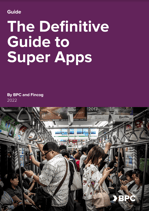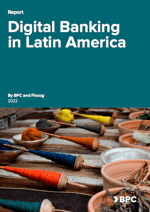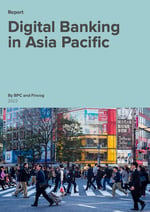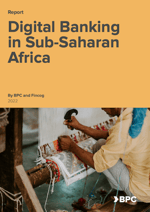In our fourth and final article in the series, we’re looking at the most widespread opportunities for newcomers to the Middle Eastern digital banking market. It’s vital for any potential entrants to fully understand the landscape, the trends, and the key success factors that will let you compete in this exciting market.
Opportunities for entering the market
We’ve previously discussed the factors that make this region so ripe for opportunity. Mainly tech advancements, consumer demand, and regional economic development initiatives. The following are three niche opportunities for entering and competing in the Middle East digital banking landscape:
Islamic finance
The Islamic Fintech market is already sizeable, and projected to grow even more in the next few years. Saudi Arabia and the United Arab Emirates are major contributors to Islamic Finance, accounting for $17.9 billion and $3.7 billion respectively. And regional regulatory initiatives, such as the Qatar Fintech Hub (QFTH), are well-positioned to support Islamic finance and help drive growth.
Cross-border payments and remittances
The GCC is made up of a large proportion of expats and migrant workers who send money ‘home’, so cross-border payments make up a large part of the Middle Eastern financial services industry. The technological infrastructure developments across the region, for example the AFAQ system which processes and settles GCC cross-border payments on a real-time basis, are a huge support for this.
eCommerce and SMEs
The significant growth in eCommerce has been a global trend, accelerated by the pandemic, and the GCC is no different. Saudi Arabia and the UAE have delivered particularly high usage rates for online deliveries and communications. With the eCommerce sector only expected to grow more, digital banks will be perfectly positioned to serve the industry, supporting SMEs by offering financial and payment solutions.
Key success factors
With the trends listed, the opportunities are evident, but what do new market entrants need to do to boost their chances of success? Here are three major success factors that we’ve identified:
Determine your market segment
To compete in such a traditionally strong banking market, focussing on a specific demographic could be beneficial. Consider who might have the strongest need for new financial services, and tailor your offerings directly to them to gain as much competitive advantage as possible. The existing banks are likely to offer a one-size-fits-all approach, without the ability to rapidly and nimbly identify and serve specific segments that neobanks and fintechs have.
Digitalise customer journeys
Another consumer preference only heightened by the pandemic is the demand for digital customer journeys. To achieve that, banks have to do more than tweaking existing processes and services. Instead, they should start right from the beginning to create frictionless, personalised digital experiences, from opening an account to complicated transaction processes.
Source the right talent
In a previous article we explained why and how the GCC countries are primed to attract top tier talent. Once the right people are attracted, they need to be retained and offered continuous development, combining the value of technology and market opportunities in a way that drives success above the competition.
To read more about the current situation and future potential you can download our new report, Digital Banking in The Middle East. Check out our digital banking platform, learn from neobank stories including Tymebank, Tonik, and contact our team should you want to know more.






